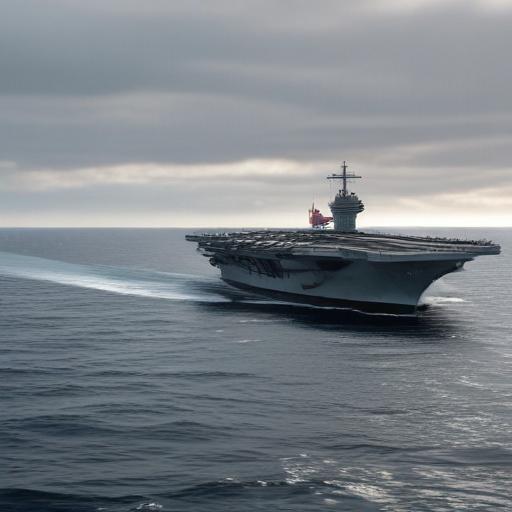U.S. expands maritime presence off Venezuela as it targets drug cartels
The United States is bolstering its naval force in the waters off Venezuela to counter threats posed by Latin American drug cartels, with more vessels expected to arrive next week. Washington has stressed that no land incursion is planned, even as the deployment dominates conversations in Venezuela and raises questions about the country’s future political trajectory.
Three U.S. Aegis guided-missile destroyers have already been confirmed for the mission, and officials say the presence could grow with the addition of three amphibious assault ships. That package would involve more than 4,000 sailors and Marines in the region. Admiral Daryl Caudle, the Navy’s chief of operations, told reporters that the ships are headed into waters off South America to support operations against drug cartels, though he declined to provide specifics due to operational security.
The deployment aligns with President Donald Trump’s push to use military means to disrupt cartels blamed for fentanyl and other illicit drugs entering the United States. Trump recently designated Venezuela’s Tren de Aragua, the MS-13 network in El Salvador, and six Mexican groups as foreign terrorist organizations, highlighting the international reach of these criminal networks.
Analysts note that the moves are as much about signaling to Venezuela’s opposition and regional observers as about concrete military plans. Christopher Sabatini of Chatham House suggested the steps are designed to apply political pressure while not envisioning a realistic invasion, a view echoed by others wary of overstating the threat.
In Venezuela, state media and officials have fed the narrative of a looming threat, while President Nicolás Maduro defended sovereignty and insisted the country remains unaffected by coca production and drug trafficking claims. Maduro urged unity and national resilience, and he publicly dismissed the accusations as part of shifting political narratives.
Diplomatic channels remained active as Venezuela’s United Nations ambassador pressed Secretary-General António Guterres to urge Washington to halt hostile actions and respect Venezuela’s sovereignty. The government also organized volunteer militia sign-up drives, presenting a show of domestic mobilization in response to the military movement, though independent observers question the scale of militia support.
Opposition figures offered mixed reactions. Maria Corina Machado praised aggressive steps against drug cartels and called for change, while noting the need for real safeguards for democratic rights and reform. Her comments reflected the broader tension between pro- and anti-government factions, both closely watching the U.S. deployment.
What this means for the region: The expanded maritime presence signals a renewed emphasis on counter-narcotics cooperation and border security, reinforcing partnerships with regional allies. It also risks heightening tensions with Caracas and complicating Venezuela’s domestic politics. Diplomatic engagement and clear lines of communications will be essential to avoid escalation while pursuing shared security goals.
Additional context and value notes:
– This deployment underscores the U.S. approach of leveraging naval power to disrupt transnational criminal networks without committing to a ground campaign.
– The situation highlights the fragile balance in Venezuela’s internal politics, where security moves can be leveraged by both the government and opposition to rally supporters.
– Observers should watch for any new deployments, flights, or joint exercises with regional partners that could indicate broader regional security cooperation or potential escalation.
If you’d like, I can tailor this rewrite to fit a specific WordPress layout, add a concise pull-quote, or produce a short summary blurb for social media.
